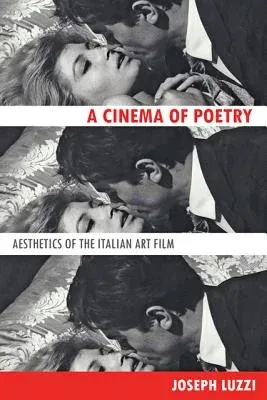Explores the poetics and aesthetics of the Italian art film in
Rossellini, Antonioni, Fellini, and other groundbreaking directors.
A Cinema of Poetry brings Italian film studies into dialogue with
fields outside its usual purview by showing how films can contribute to
our understanding of aesthetic questions that stretch back to Homer.
Joseph Luzzi considers the relation between film and literature,
especially the cinematic adaptation of literary sources and, more
generally, the fields of rhetoric, media studies, and modern Italian
culture.
The book balances theoretical inquiry with close readings of films by
the masters of Italian cinema: Roberto Rossellini, Vittorio De Sica,
Luchino Visconti, Michelangelo Antonioni, Federico Fellini, Pier Paolo
Pasolini, Bernardo Bertolucci, and others. Luzzi's study is the first to
show how Italian filmmakers address such crucial aesthetic issues as the
nature of the chorus, the relation between symbol and allegory, the
literary prehistory of montage, and the place of poetry in cinematic
expression--what Pasolini called the "cinema of poetry."
While Luzzi establishes how certain qualities of film--its link with
technological processes, capacity for mass distribution, synthetic
virtues (and vices) as the so-called total art--have reshaped
centuries-long debates, A Cinema of Poetry also explores what is
specific to the Italian art film and, more broadly, Italian cinematic
history. In other words, what makes this version of the art film
recognizably "Italian"?

